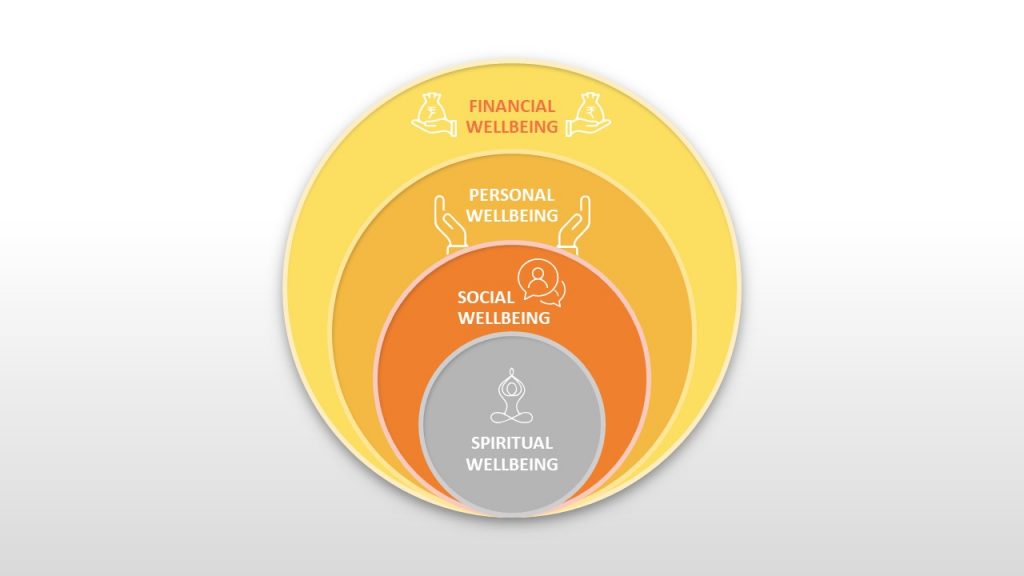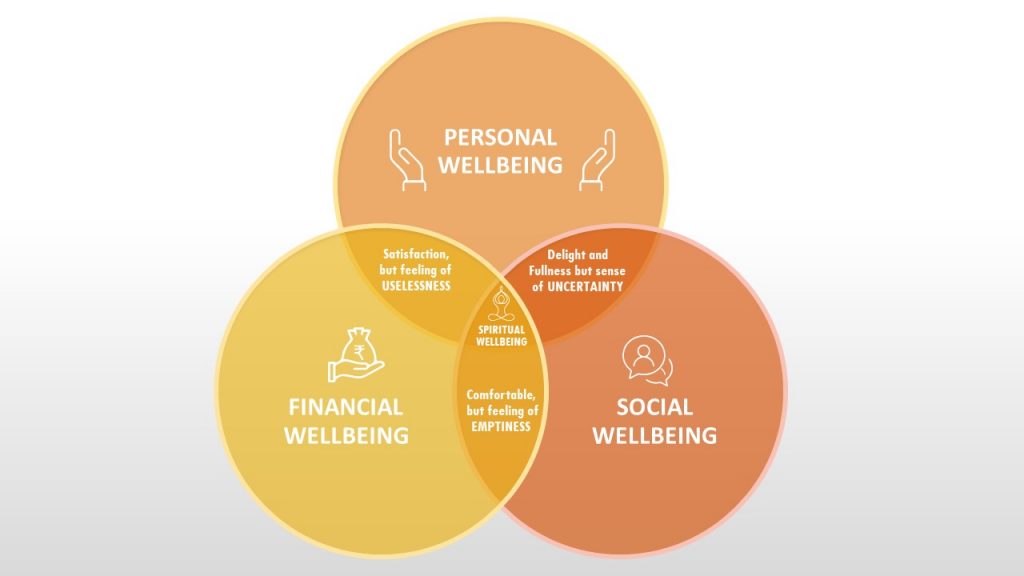The goal of 4 Purusharths of life (Dharm, Arth, Kaam, Moksh) is for us to attain peace, happiness and satisfaction through spirituality in our daily life. Many, may think that spirituality means to renounce everything, give away all the worldly comforts and pleasure, do meditation etc. However, from my experience of being a monk for 12 years, I have made these modules in which one can attain the same spiritual bliss without renouncing the world.
The various modules created by me can be classified into 4 broad categories of wellbeing. These are derived from the essence of the 4 vedic Purusharths as mentioned earlier. These 4 categories are:
- Personal Wellbeing,
- Financial Wellbeing,
- Social Wellbeing and
- Spiritual Wellbeing
Now there are two ways of achieving the highest wellbeing which is the Spiritual wellbeing (Moksh- Purusharth) and it can be explained in the following diagrams:
Option 1: Spiritual Wellbeing

The Option 1 says that the spiritual wellbeing can be attained if we get rid of our personal wellbeing, our financial wellbeing and our social wellbeing. Once we rise above all these considerations then we can transcend to the higher state of Spiritual wellbeing. India has been the land of sages and has upheld this tradition, however, for the common people the same sages have offered a different option to attain spirituality in their daily life without renouncing the other 3 wellbeing.
Option 2: Spiritual Wellbeing

The Option 2 is for us, the common people who can attain the highest bliss of spiritual wellbeing without renouncing the others. In fact, this path is such that the spiritual wellbeing can only be found at the intersection of all the other three wellbeing. So, only when all 3 wellbeing are at perfect harmony can one attain the spiritual wellbeing. This understanding can be found from in depth studies of vedic texts which pronounce: “Tat Tvam Asi” (You are that), “Aham Brahm Asmi” (I am Brahm), “Pindeshu Brahmandeshu” (Unity in body & Universe) and Upanishadic prayer: “Aum Purnamadah Purnamidam Purnat Purnamudachyate Purnasya Purnamadaya Purnameva Vashisyate” (You are infinte).
